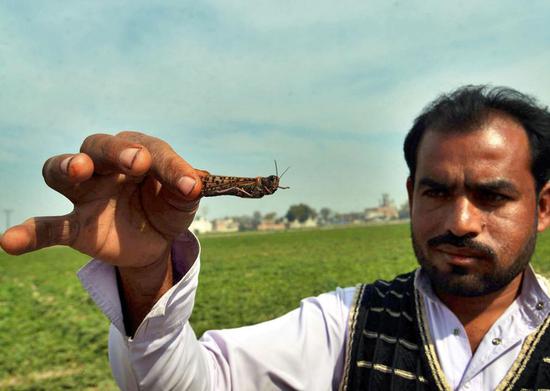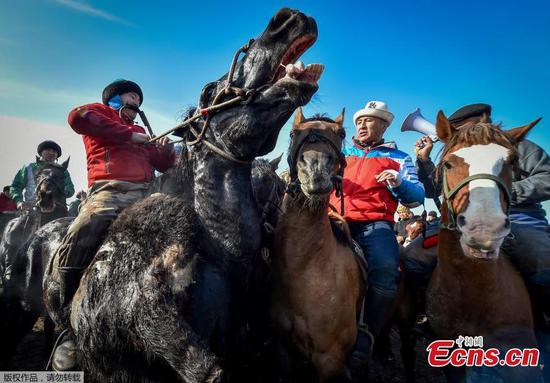It is extremely unlikely that desert locusts will directly migrate into China's inland areas, but if the overseas desert locust plague persists, the probability of locusts entering China in the summer will sharply increase, a Chinese agricultural expert said Monday.
The border area between southwest China's Tibet Autonomous Region and countries of Pakistan, India and Nepal is a desert locust spreading area, said Zhang Zehua, a researcher at the Institute of Plant Protection of the Chinese Academy of Agricultural Sciences.
Due to the limitation of environment, climate and food, desert locusts pose little threat to agricultural production in China, and it is extremely unlikely for them to directly migrate into inland areas of China due to the barrier of the Qinghai-Tibet Plateau, Zhang said.
There are more than 1,000 kinds of locusts in China, including more than 50 kinds of locusts that can lead to disasters, which have posed a serious threat to grain production and grasslands, he said.
China has formed a mature locust prevention and control response mechanism and has established a national four-tier locust monitoring and early warning system, as well as a green and sustainable locust prevention and control technology system, he said.
He suggested the government to coordinate the prevention work in various provinces and regions, carry out real-time monitoring, and prepare sufficient pharmaceuticals and pesticide application equipment while boosting global cooperation to share information and methods in fighting locusts.
Desert locusts are considered as one of the most destructive migratory pests. They can fly 150 km with the wind every day and survive for about three months.


















































